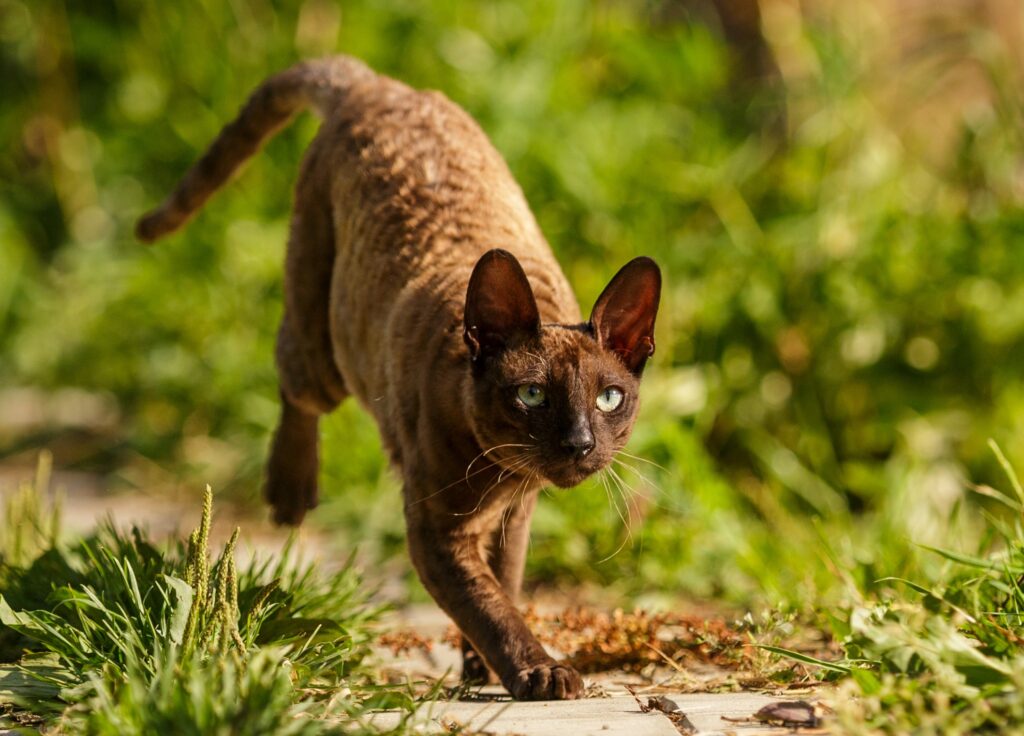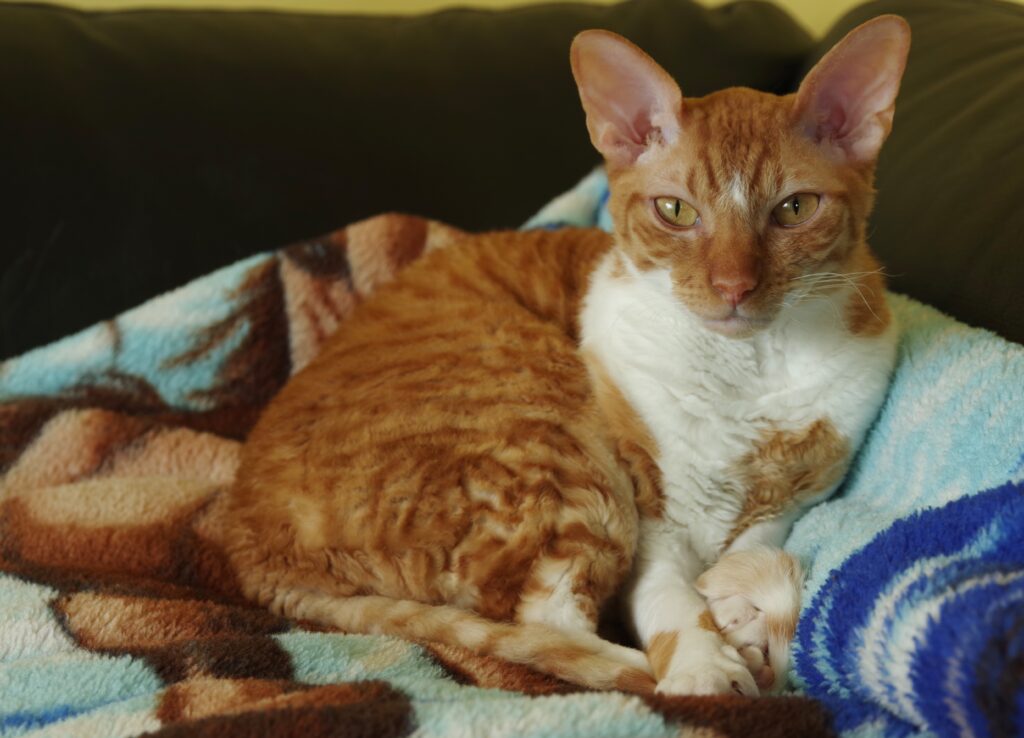The Cornish Rex is a highly distinctive cat breed known for its ‘rex’ coat which is curled, waved or rippled. This unusual coat variation is the result of a genetic mutation which first occurred in a farm cat in Cornwall, UK.
Cornish Rex cats are lean and dainty, and love being active. They are also highly social and bond well with their owners.

Description and Characteristics
The Cornish Rex is easy to recognise as a result of its highly unusual fur. Unlike most other cats which have three types of hair (the outer fur/guard hairs, middle layer/awn hair and an undercoat/down hair), the rex only has the undercoat due to a genetic mutation. Their fur is therefore extremely soft but can also be very thin. Typically, the coat is waved or rippled, lying close to the body and comes in a variety of colours.
Cornish Rexes are small to medium-sized cats. They have a slender build and a gently curving outline and long delicate legs. Their head is relatively small and egg-shaped with large alert ears set high on the head, and medium-sized oval eyes of various colours. Despite their slender build, these are athletic cats which are in no way fragile. They love to run and are known for their distinctive gallop and acrobatic jumps. They enjoy interactive games and will quickly learn how to play fetch.
Cornish Rexes are very intelligent and friendly cats which thrive in the company of their owners. They also adapt well to other cats and pets. Prospective owners should be aware that owing to their thin coats, Cornish Rexes are sensitive to low temperatures and need to be kept warm. In addition, their low-shedding coat can be very fragile, breaking easily even with light brushing. Some cats may also develop bald patches. Despite their thin fur, they are not hypoallergenic.
Health and common issues
Cornish Rex cats are generally healthy, however, they can still be prone to a number of health conditions including polycystic kidney disease (PKD) and progressive retinal atrophy (PRA), a genetic eye condition. There are also some welfare concerns regarding their coat, which is the result of a genetic mutation which has been deliberately bred from. Due to their very thin fur, Cornish Rexes can be sensitive to the cold and they may need additional protection from the sun. In cats with little fur, including the Cornish Rex, the oil naturally produced to maintain the skin and hair is not able to naturally spread through the cat’s usually dense fur and therefore may build up on the skin. In some cases, this can make the cat feel greasy. The cat itself may feel uncomfortable and itchy as a result of oil build-up.






